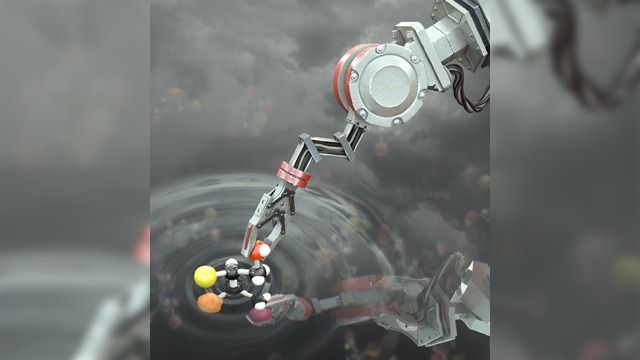Autonomous driving technologies are already established in mining and agriculture thanks to companies such as Caterpillar and John Deere.




How the tech giant is trying to leverage the science of breakthroughs and resurrect the lost art of invention
A snake-robot designer, a balloon scientist, a liquid-crystals technologist, an extradimensional physicist, a psychology geek, an electronic-materials wrangler, and a journalist walk into a room. The journalist turns to the assembled crowd and asks: Should we build houses on the ocean?

Scientists at The University of Manchester have created the world’s first ‘molecular robot’ that is capable of performing basic tasks including building other molecules.
The tiny robots, which are a millionth of a millimetre in size, can be programmed to move and build molecular cargo, using a tiny robotic arm.
Each individual robot is capable of manipulating a single molecule and is made up of just 150 carbon, hydrogen, oxygen and nitrogen atoms. To put that size into context, a pile of a billion billion of these robots would still only be the same size (volume/weight) as a few grains of salt.

According to India’s Frontline magazine, anecdotal evidence from Chennai, Hyderabad, Bangalore, Pune and other cities suggests that a number of large IT service companies are shedding thousands of jobs as artificial intelligence, automation and deep learning technologies replace humans.
Bangalore’s outsourcing businesses may be on the wane, but cities like Hangzhou may indicate its best course for the future.
PUBLISHED : Tuesday, 10 October, 2017, 10:00am.
UPDATED : Tuesday, 10 October, 2017, 10:00am.
Neuromorphic Computing #intel #selflearning #ai
MouseAge (https://www.lifespan.io/mouseage) is creating the first photographic biomarker system using the power of artificial intelligence.
The goal of MouseAge is to create a system capable of determining the age of mice without the need for invasive or even harmful tests.
This means researchers can measure changes to biological age in mice helping to speed up research and reduce animal suffering.
This new robotic skin could tell the difference between hot and cold water.
